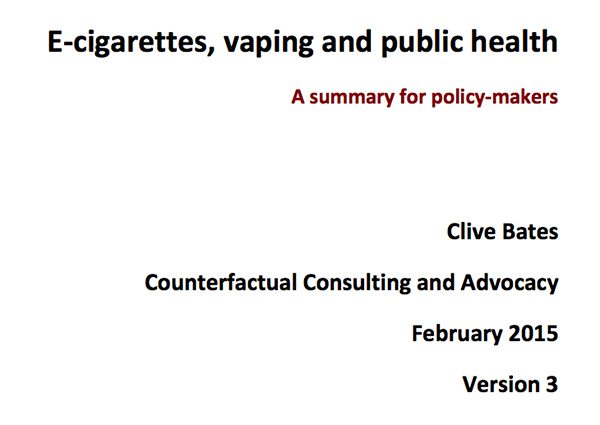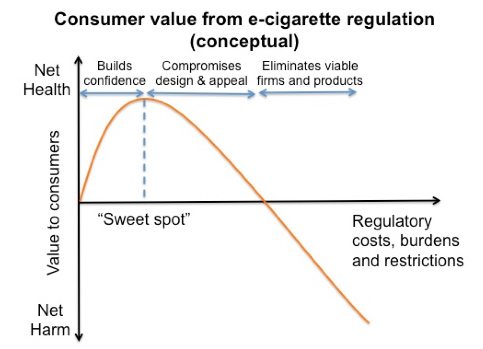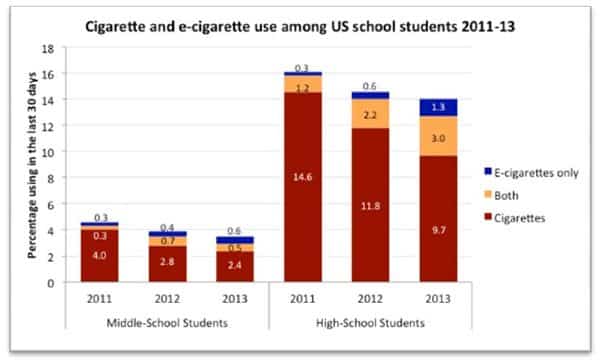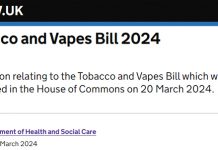Clive Bates is a well-known advocate of electronic cigarettes. He has been running the Counterfactual blog since 2012 and offering excellent insight into the treatment of vaping by politicians and public health figures. He has offered to publicly debate the topic with Professors Glantz, McKee and Chapman (vocal ecig opponents) but they have not replied to his invitation.
Recently, Clive completed a briefing document on the science and policy of e-cigarettes and vaping. The document is aimed at businesses, public health advocates, researchers and us.
Its aim is to assist “in understanding and communicating the science and policy issues arising from e-cigarettes and vaping. It takes a positive but evidence-based approach to vaping and ‘tobacco harm reduction’.”
The beauty of the document is that vapers can dip into it for information when discussing vaping with friends, family and employers. Given 2015 is also an election year it is a very handy source if you wished to educate prospective parliamentary candidates too.
It continues by covering the science behind vaping and the health dividend to the country through people quitting smoking. It highlights how vaping in place of smoking leads to a public health benefit. Key facts include:
“E-cigarettes dramatically reduce risks to health, likely by 95-100%” and “The public health benefit does not rely on public spending.”
Clive cites:
“Leading UK smoking cessation experts; Professor Robert West of University College London, Professor Peter Hajek of Queen Mary University of London, Professor Ann McNeill, of Kings College London, Dr Jamie Brown of University College London and Deborah Arnott, the Director of Action on Smoking and Health” to support his information.
Having proven the safety of using electronic cigarettes, Bates addresses efficacy – do they work in helping people to quit smoking? A combination of studies has shown that they do. Using three sources, including one by anti-smoking group ASH, the effectiveness of ecigs is beyond all doubt.
The problem we encounter is that newspapers frequently carry misleading stories and false information put out by critics of vaping. It is this Clive turns to next. One by one, he takes their objections and demolishes them. These include: the risk to users and others from vapour, nicotine itself, ultra-fine particles, formaldehyde production, poisons in the vapour, heavy metals and lung irritation. All combated with references to actual peer-reviewed research from independent scientists and doctors.
Then he focuses on the non-medical objections, debunking the notion that e-cigs ‘renormalise’ smoking, use cigarette-like marketing, reduce the ability for people to quit smoking effectively or act as a gateway for non-smokers into the world of cigarettes.
He addresses the ridiculous notion that flavours are created to appeal to children (as if adults didn’t love to demolish their children’s packets of Haribos!) and continues to pose the question about what would happen if we do not embrace the electronic cigarette revolution. He recalls the huge mistake Europe made regarding Snus, a product that has had a massive impact on safely reducing smoking in its native Sweden.
Bates completes his coverage of potential objections by looking at those that stem from a distrust of the tobacco industry and how they’ve behaved over the last fifty years. Those opposed to vaping tend to have firmly entrenched views about e cigs due to it looking like smoking and containing nicotine like cigarettes – something they don’t apply to high-nicotine products like potatoes.
He analyses why people might object, be it for the aforementioned reasons or that they hold a conflict of interest due to from where they receive money. As he says: “it is not safe to assume that anyone with a public health profession or remit to protect health is actually acting rationally in the interests of health.”
The document concludes with an in-depth look at how vaping is being treated abroad, what legislation might be considered and how that would effect the health of smokers and vapers.
Thanks to Clive openly sourcing the finished piece and contributions from the public, this excellent piece of work has been refined to the point where it stands as one of the greatest pieces of work for self-education or enlightening others about electronic cigarettes, vaping and e-Liquids.









